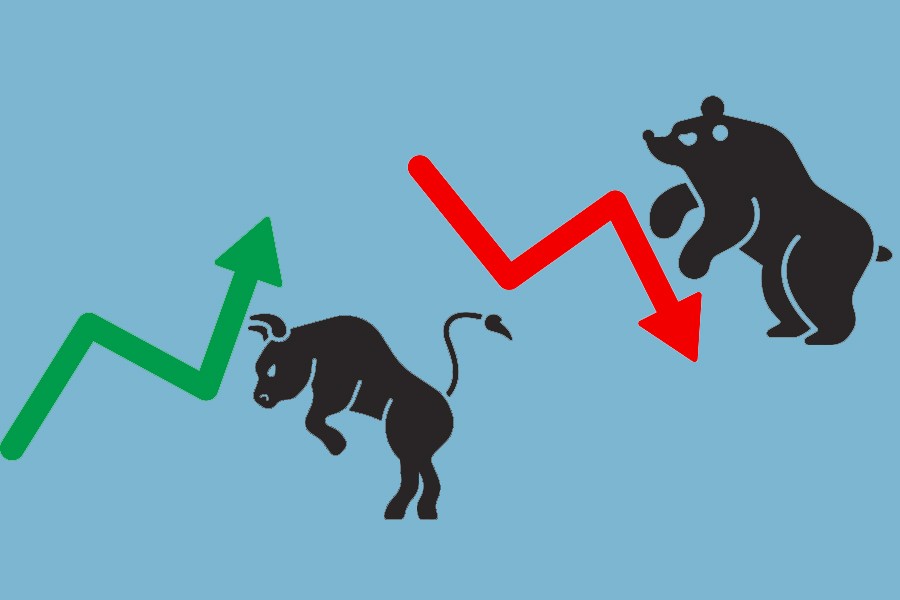One of the senior-most economists of the country and also a revered teacher to many of us, Professor Rehman Sobhan told a gathering of economists that the stock market is plagued with gambling, and gamblers are using it like a casino. His observation, though generalised, is by and large correct. Of the Tk.4-5 billion turnovers that take place, on average, on the Dhaka Stock Exchange daily, a large part of that comes from outright gambling. Though, there was no research to let us know exactly what percentage of turnover comes from gamblers' trade but the people, including stock investors, believe that gamblers' part will not be less than 30 per cent of the total daily turnover. Many want to say, without gambling the market will simply go dry and that in the absence of gambling, the normal turnover that comes from the real investors will even fall. While speculation and gambling go hand in hand in stock investment, speculation thrives on speculation itself or when speculators gamble on their luck in a charged atmosphere, the stock trading turns to be casino where gamblers throw more money only to get more, but at the end, all do not win, some lose, some win in a framework of zero-sum game.
Why gamblers gamble on the stock market? The best answer to this lies with the gamblers, but what they say is that, they beat and outwit the rivals, and at the end, they win more. The greed and psychological instinct to become rich in a short time takes them to gambling. When their number is few, they do not benefit from their machinations. It is only when their number grows with large number of smaller ones that they achieve their objective. The gamblers use many tools to achieve their goals-- gossips, rumours, chatting on internets, sms on mobile telephones. Disseminating non-existent information among the peer groups are the usual instruments of the gamblers. Gamblers go together, without gambling on the stock exchange they find nothing in it. For them, investment for dividend or slow capital gain is an anathema. They do not have the patience and time to wait for so long to benefit from the receipt of dividends or from normal capital gains. They believe in the rule of break or win.
Gamblers chose companies with small equities to push their stock price up. When a particular stock price hits the roof in consecutive few days, other new entrants or novice and naïve investors, out of greed, see gain in it, pushing the rise of that stock price further. When the main gamblers think that the target price has already reached, they start pulling the rugs from under the feet of other investors. Gamblers also have the syndicates. But most of the naïve gamblers with small capital do not have the syndicate. The syndicated gamblers win most of the time. The net loss happens to the small and new gamblers, but that does not prevent them from gambling.
How to stop the gambling on the bourse? There is no way that it can be stopped completely. At best, the spree of gambling can be contained. Perhaps the bourse and to some extent the regulator also do not want that gambling on the bourse be weeded out completely. They find life of stock trading in it. But does the uncontrolled gambling on the bourse keep the real investors away? Yes, it does. When the hesitant and unsure investors see that the gamblers are running the show, they do not care for the stocks' fundamentals, they stay way, fearing they might burn their fingers by entering into the frenzy. Fundamentals in the Bangladesh stock market are also deceptive. Today's good fundamentals turn to be bad fundamentals tomorrow. That keeps the potential investors away, and makes them hesitant whether to take stakes in stock investment or not. The best way of containing gambling is to supply the stock market with fundamentally strong stocks. Once the genuine investors find more of good stocks in the bourses, they will not turn to gambling, at least not in large numbers as we see now. The regulator has a responsibility in making the market free from all sorts of nuisance. The gamblers in many cases are breaking the securities law, but they are going scot-free. Gamblers are also manipulators, but in most cases, they go unpunished.
Abu Ahmed is a Professor of Economics at the University of Dhaka.


